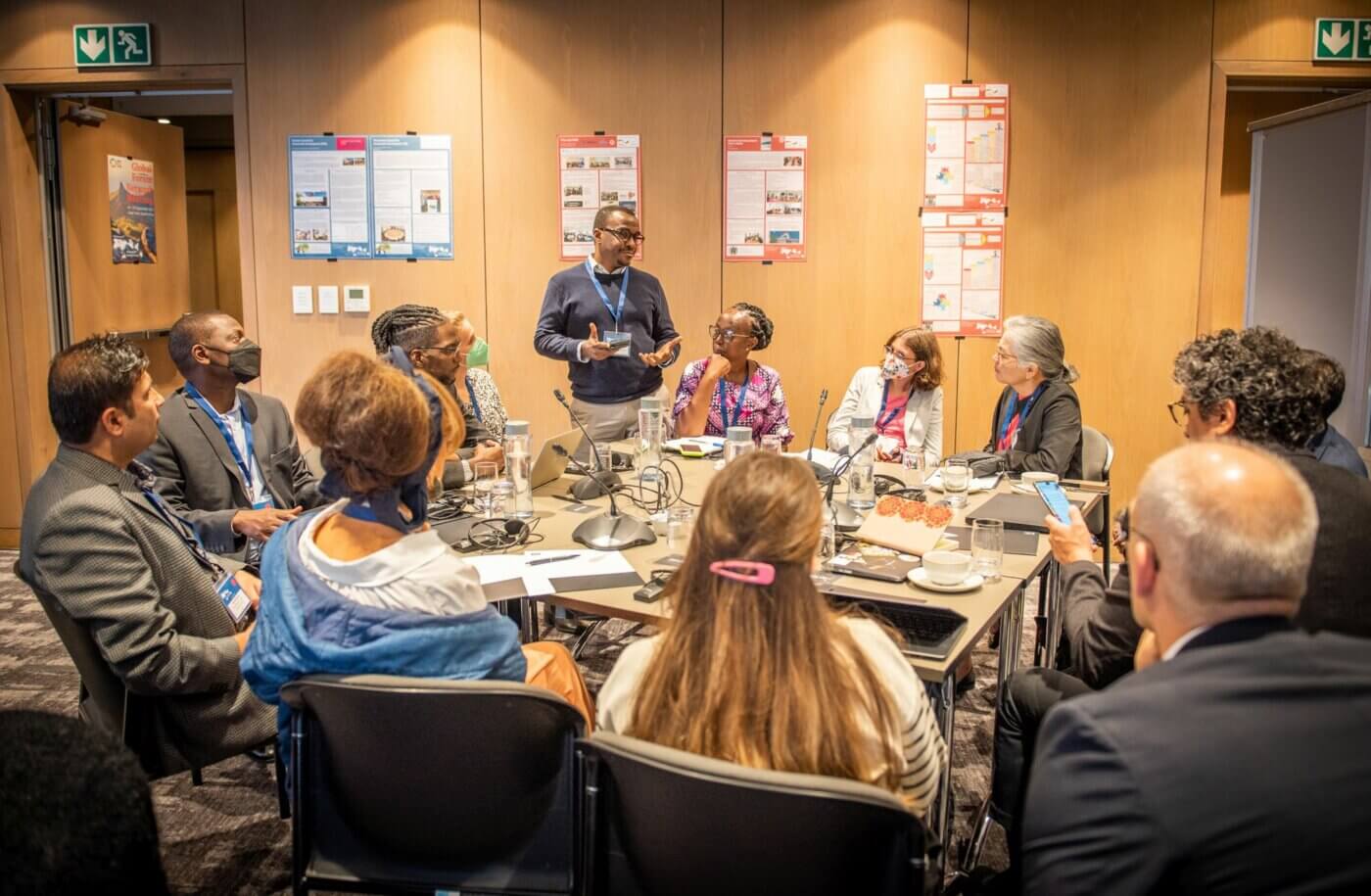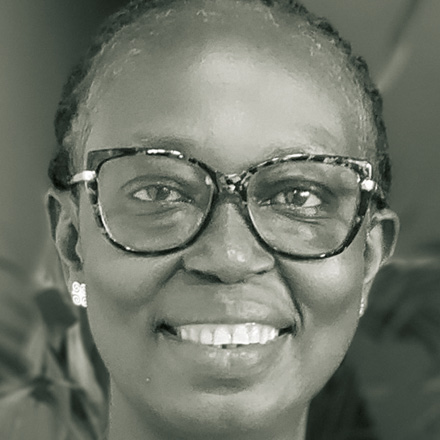Coping with legal pluralism
[ By Henrietta J.A.N. Mensa-Bonsu ]
Legal pluralism is the state of being subject to more than one system of law in one place at one time. In Africa, legal pluralism typically results from various systems of norms that coexist. On the one hand, there is customary law. It is rooted in various communities’ traditions. On the other hand, there is common law in Anglophone countries or civil law in Francophone countries. Common law is, in principle, a system based on codified rules including precedent rulings by the judiciary. Civil law, in turn, is a (more or less) coherent set of rules defined by legislatures. Both common and civil law only coexist uncomfortably with customary law.
Legal pluralism goes along with tensions, as conflicts over norms must constantly be managed. Particularly conflict-prone is the area of criminal law. Enforcement of rights under customary law is also often contentious.
In Ghana, some important areas of law are predominantly governed by customary law. They particularly concern land and family. The result is that citizens are expected to adhere to ethnic traditions and common law at the same time.
Ghana’s Courts Act of 1993 defines customary law as “rules of law which are by custom applicable to particular communities in Ghana”. Obviously, what is at stake cannot be a single coherent body of law. Rather, customary law is made up of a myriad of different rules systems. They are as varied and as numerous as Ghana’s multitude of ethnic groups. Islamic law is only one important component among many others. In view of such complexity, one would be well advised to speak of customary laws, rather than of customary law in the singular.
Divergent attitudes
In terms of shaping peoples’ attitudes, the effect of legal pluralism is that the citizens move in and out of the various systems as occasion or convenience demand. Citizens may adhere to – or newly adopt – divergent attitudes, borrowing from one culture into another or, worse, develop views that are really an amalgam of different legal cultures, with individual elements of that amalgam remaining foreign to the legal contexts in which they are applied. Moreover, there is not guarantee that various elements of that amalgam are really compatible.
Depressingly, it is not just the ordinary citizen who struggles to come to terms with legal pluralism. Even professionals, such as lawyers and judges, are not immune to conceptual blurring. Of course, such professionals play a crucial role. In the context of the modern state, they are the ones who must understand and interpret the law. Courts’ decisions are binding, and should convince people without legal training. In other words, the professionals need to come to grips with the legal precepts and the philosophy of law.
In Ghanaian courts, legal professionals are expected to base their decisions both on customary and common law. They are, of course, members of the society they live in. Having been born and raised in a legally pluralistic culture, they are, as private individuals, just as subject to customary law and other forms of law as everyone else. Frequently, values are transposed or transferred, and thus may end up not representing either the modern world view nor the traditional culture appropriately.
Every Ghanaian is subject to some kind of customary law system, since the personal law of every Ghanaian is determined by the ethnic group into which the person was born. The determination of personal law is, in itself, not a simple matter. For instance, some systems are matrilineal (with the membership of the family being traced along the maternal line) and some are patrilineal (based on the paternal line). In addition to this difference, almost all systems in use practise unilineal descent (one person can only belong to one ethnic group). In cases of cross-cultural marriages, that is obviously a recipe for conflict. Depending on the various cultures, their offspring may suddenly belong to both systems, nor to neither. In such cases, it is difficult to tell which law applies to a person.
Another set of problems stems from the fact that Ghana’s various ethnic cultures knew no writing. Accordingly, there are no written records and it can be difficult to find out exactly what traditional rule applies to a given, specific case. Sometimes, courts simply do not know the relevant norms. Before settling any dispute in such matters, they first must research the precise content of the customary law.
Since 1960, various Courts Acts of Ghana have included rules on how the judiciary should ascertain the content of customary law. According to the provisions currently in force, the courts basically have two options when in doubt. They may
– consult recognised legal sources such as judicial precedents or textbooks in the course of the trial, or
– organise an enquiry and call expert witnesses as well as asking for written opinions from the traditional political authorities.
The findings are then to be applied to the cases at stake.
While both approaches make sense in principle, they offer no formula against confusion. Consider the case Avuugi v. Abugri, which dealt with accusations of seduction. In this case, the judge decided he did not need to start an inquiry as he found the traditional rules unacceptable. However, he was applying a legal precedent from the Akan of southern Ghana to the Kusasi of northern Ghana, a completely different ethnic group. It would have been necessary to find out what Kusasi customary law said about seduction.
Two judicial schools
Nonetheless, the question is relevant whether judges have to apply customary rules after having ascertained their content. There are two incompatible schools on how to deal with this question, the “conservative school” and the “modern school”. The judges of the conservative school consider themselves bound by ascertained rules, even though they may express discomfort when enforcing them. However, they argue that it would be unjust for courts to change a community’s law. Judges, in their view, should only assist the process of change by recommending reforms to the legislature.
The modern school disagrees. It holds that the courts can – and even should – interfere with customary rules if applying those rules would result in decisions that would be considered unjust in the light of the demands of modern life. These judges believe their office entitles them to inject doses of modernity into customary law.
One must not under-estimate the sheer dimension of the dilemma we are facing here, as both the conservative and the modern approach have their faults. If judges attempt to modernise customary law as they find fit, what remains of customary law in practice? Obviously, the courts are then assuming the role of legislatures, by beginning to make, rather than interpret law. On the other hand, the conservative approach is also unconvincing. If courts uphold out-dated rules, the legitimacy of which has already come under fire, they are in fact only ossifying those very rules.
Indeed, it must be acknowledged that some customary-law rules are founded on notions that are no longer tenable. For instance, some rules can be traced back to the practice of slavery, and others are rooted in the belief that a woman is her husband’s chattel. Certainly, no modern court can accept such notions. In such cases, judicial interference with customary law is certainly justified, as any other approach would violate constitutional principles and international treaty obligations.
Currently, the Courts Act, somewhat disingenuously, permits the courts to try and achieve results that “meet the requirements of justice, equity and good conscience” or “adopt, develop and apply remedies … as appear efficacious” and also meet the requirements of “equity and good conscience”. The courts are thus empowered to interfere with customary law after having ascertained what that law is in the particular case they are dealing with, depending on what community is involved.
In fundamental terms, this approach does not really differ from the colonial judiciary’s repugnancy clause. That was a clause that allowed judges to diverge from customary law. Ghana dropped that clause after independence, as it did not seem to pay sufficient respect to customary law as principles of a distinct legal system. However, this change in status did not change the nature of the problems that had to be resolved by the courts. These problems still remain, and we must still rise to the challenge of finding an approach to modernisation that allows us
– to preserve the authenticity of traditional cultures,
– to foster the useful and healthy aspects of customary law and, at the same time,
– to reconcile these normative systems with the constitution, international requirements and modern life in general.
Conclusion
Three pertinent questions, beyond ascertaining, remain:
– Is every rule, which is derived from the traditional system, really a binding legal principle?
– If so, is it still relevant in view of socio-economic change?
– To what extent should courts respect modern lifestyles that have evolved beyond or outside traditional rules, or should conventions be enforced, no matter how archaic they may be?
These questions are not of merely theoretical or cosmetic interest. They matter for people’s lives, and for the very survival of their cultures. Even if judges carefully examine various and competing legal norms, they constantly run the risk of putting people at disadvantage, simply by ruling against (traditional or modern) norms these people, with good reason, believed to be in force.
The current state of the various customary laws in Ghana, is often one of confusion and doubt. Some of these doubts have been created by the unwritten nature of customary law, but others by the activities of the courts themselves. These issues require serious attention from the Parliament of Ghana.














